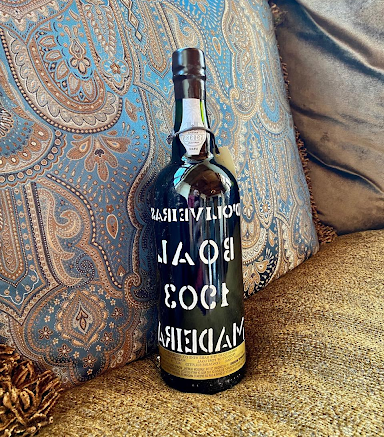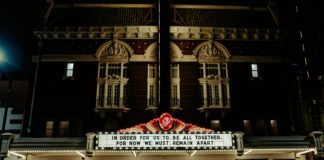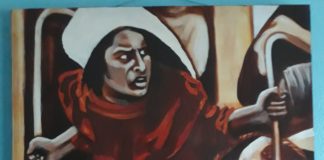We doubledowned on Slack to get random eyeballs on problems. We raised the synchronous sharing of Google Docs and Sheets to an art form. We invited customers, partners, investors, and board members to join us more regularly on Google Meet or Zoom, to help lift the wind in our sails
It was the eve of the last day in April, the end of the first quarter of our fiscal year and there was really no way to describe it other than what I wrote to my data.world colleagues: “Team, there are times in a company’s history that are truly defining.”
This was one of them as we closed in on goals set before the pandemic.
Just six weeks before, though it felt more akin to six years, I had experienced the deepest doubts of my business career. I’m not a sailor, but I thought often of that mariner’s phrase, “Dead Reckoning.” It’s the final tool of the captain when the GPS fails, the radar’s broken, the records of distance traveled disappear, and there’s little information on the distance to your destination. There we were, an almost five-year-old data company, signing new deals, recruiting new investors, ramping up our sales targets, and bursting with confidence. And then, seemingly overnight, a pandemic moved from distant headlines to Austin reality. The entire planet seemed to be migrating to Zoom. The economy was as if teetering on a cliff. Conventional businesses were closing up around us and my cohesive, 50-plus team that gathered every day with the tight choreography of a ballet became — literally overnight — a “distributed workforce.”
Sure, we’re a tech savvy firm. Our software enables the linking, querying, cataloging, and analyses of disparate data. We were used to tools like Google Meet, Zoom, Slack, and of course our own data.world, built for remote work around data. Just like my metaphorical captain probably still has a compass he’s handy with, and a team expert with sails and binoculars. But the main tool of navigation when the conventional ones disappear is really your judgment of speed against objects around you, those “dead in the water.” It’s an instant when a leader has to rely more than ever on his or her instincts, on past experience, on muscle memory if you will.
In any sales call I make, I always try to work in the case that data is knowledge. It is the insight into customers, suppliers, market trends, and employee needs. I’ll tee up with that to then make the point: “If you don’t have enough knowledge, you’re not going to be able to manage much at all – especially during a pandemic.”
But what I quickly learned after those early days of real doubt, described in my first essay on fear, is that we hadn’t really lost any knowledge. Our “GPS” and “radar” were intact, we just needed to quickly learn new ways to access and use the instruments. This was Dead Reckoning of a different sort. In particular, we had to work very hard to identify and manage the sources and types of information that we’d taken for granted.
A new kind of knowledge and information ‘silo’
In the data business, talk of “silos” is almost a cliche – the need to break down data silos between say, IT’s customer usage stats with feedback collected by the marketing team. But less discussed is the informal data, or knowledge. Assembled in a conventional workspace, if a colleague sends me a spreadsheet which is everything I asked for but there’s one piece I don’t understand, I know to walk over to her desk and just ask. She may know instantly, or she may turn to another colleague, more familiar that bit of nuance, asking him to join the conversation. The three of us huddle for five minutes, minds meld, and the riddle is solved. But how do you create that knowledge-sharing model in virtuality?
As noted above, we’re hardly afraid of tech tools, and the team gets all the credit for figuring out so much of this. Transparency was our mantra. We doubledowned on Slack to get random eyeballs on problems and keep everyone apprised. We raised the synchronous sharing of Google Docs and Sheets to an art form. We became more expert internal users of our own data.world platform, adopting more of what we evangelized to our customers. We invited customers, partners, investors, and board members to join us more regularly on Google Meet or Zoom, to help lift the wind in our sails by telling us how much they believed in us.
Two of my passions are my daily workout and podcasts. Together. It was in this period in April that I listened to one of my regulars, the podcaster Sam Harris’ Making Sense. His guest was Matt Mullenweg, one of the founders of WordPress, the web software which carries something like one third of all Internet traffic. It’s also long been an entirely distributed company, with 1,200 employees. Long before the pandemic, there was simply no office to which WordPress employees could go.
If anyone’s thoughts and ideas cemented my growing euphoria in this phrase, it was Mullenweg’s insights into exactly this methodology we were working out for ourselves with trial and error in the fast lane. Even though Sam had recorded this interview with Mullenweg in March, I had waited until just now to listen to it. I can’t really explain why I waited, but I think it was because I just wasn’t ready to be preached to in this forced, all-tasks-by-remote experiment that so many of us in knowledge work were undergoing. It was still just too raw during the fear phase.
Learning new ways to ‘pass the baton’
He compared WordPress’ well-honed remote work techniques to the storied Japanese 4X100 meter relay team that’s grabbed medals around the world in recent years, including silver at the 2016 Olympics in Rio de Janeiro. The secret is in the passing of the baton, using an underhand pass that doesn’t break the runners’ rhythms, shaving seconds off their time. And seconds count. What we were really figuring out in the work-from-home world is new ways to pass the baton.
“The pandemic,” Mullenweg argued, “is a time for companies to ask themselves ‘what are we really selling?’ as he noted the old yarn that selling a drill bit is really about selling a hole in the wall. We repeatedly asked ourselves this question. We honed our message, iterated more quickly, and the market for our tools began to pick up at a faster pace. The pandemic was driving a real need for our customers to collaborate on data – and we were listening to them better than ever before. With the surge in innovation, we were releasing almost 100 new iterations of our platform each month. And we still are.
As we kept marching toward our pre-pandemic goals, one of the tough decisions we made was not to apply for Paycheck Protection monies in the $2.2 trillion CARES Act passed by Congress in late March. I had promised the team there would be no layoffs. We might have qualified, but among other things, the Board and I felt this would send the wrong message. Our North Star would be customer engagement and net sales targets. Full stop.
And our sense of mission was certainly bolstered by some of the new clients we took on — both commercial and pro bono as a public benefit corporation, a “B Corp” in the jargon that enshrines social responsibility and obligation in our bylaws. In early April, we launched an open data, COVID-19 Data Resource Hub with Johns Hopkins University and others, using university research organized by Seattle-based data analytics company Tableau, a key partner of ours. Among other partners were Austin-based Smarter Sorting which created a dataset helping businesses, including hospitals, find the 351 anti-COVID disinfectants approved by the U.S. Environmental Protection Agency. Traffic to this open data hub took off like we had never seen before – it was inspiring and more COVID-19 data sharing partners signed on.
As the conferences that were at the core of lead generation for sales and marketing evaporated, we quickly became adept at hosting virtual events of our own. One for data.world’s record book was a webinar we conducted with the New York-based Associated Press to demonstrate and expand our COVID-19 portal to aid journalists covering the pandemic. It was our best attended webinar ever at that time and it wasn’t even close.
In my discussion of the “fear phase” in my last essay, I mentioned the TED conference I had joined virtually, and the cold insights of philanthropist and investor Ray Dalio who had so added to my fear. But in the ensuing weeks, as I had spent less time with his diagnosis and more time with his prescription, the influence on my mind by the manager of the world’s largest hedge fund began to change.
Returning to my notes of that gathering in March, two things stood out. One, Dalio’s advice that among the companies best able to weather the storm were those stable and providing the basics, like Campbell’s Soup. “They have the stuff we are always going to need,” he said.
Secondly, he advised, pay attention to the innovators with strong balance sheets. “New inventions and great creativity really matter,” I wrote in my notes.
Our team quickly moved into those industries, and many were those buying the kinds of services we deliver. Among other new clients in the quarter were a healthcare company and a data analytics firm.
Meanwhile, there were other kinds of evolution affecting my outlook. On a personal level, my mood was buoyed by the increasing time with my family. My children were now schooling from home and going through a similar discovery of new ways to “pass the baton” while I was liberated from days and sometimes weeks on the road. I suddenly found time to devote to new groups I was invited into, such as White Men for Racial Justice, quickly formed after the tragic murder of George Floyd. And I reconnected with my ongoing inquiry of Vedanta, a philosophy and set of mindfulness tools to create a happier life, and whose spiritual message had earlier drawn my wife Debra and I to study at the Vedanta Academy in India. Now, like seemingly everything else, the wisdom of Vedanta was available online for all to enjoy.
This new mode of distributed collaboration also flattened hierarchies and opened access in ways I was just discovering. While sensing the deep change afoot, I was only to understand the profound importance of all this later on. In short, it would have been “odd” before the pandemic to engage in many of the newly created virtual groups online. But as it became a norm, a type of “access euphoria” added to my exhilaration. This too was another deep lesson in leadership.
Getting to raise a glass from a bottle of 1903 Madeira
And as I sat there ready to write the team at the end of the quarter, we had not only aced our quarterly sales goal, we had also hit 150 percent of our quarterly targets for customer engagement. We had become more essential for our customers than ever before.
Indeed, this was one of those defining moments in the company’s history.
“I love data.world,” I wrote. “And I love the amazing people I work with.”
Then, reflecting on Dead Reckoning and the spirit of the earlier mariners who set out from Portugal in the “Age of Discovery,” I had an idea. Before those sailors discovered the New World in the 15th Century, they discovered the island of Madeira, now known for its famous dry wines vinted by a process that gives them stability on long voyages. The most valuable bottle of wine I own is a 1903 Madeira, bottled 15 years before the flu epidemic of 1918.
This, I told the team, I would be setting aside to celebrate with once we are all together again — a salute to the Dead Reckoning of the ancients, and to our own.
And then I cried. Tears of pride, and tears of joy.
I was euphoric.






